Share
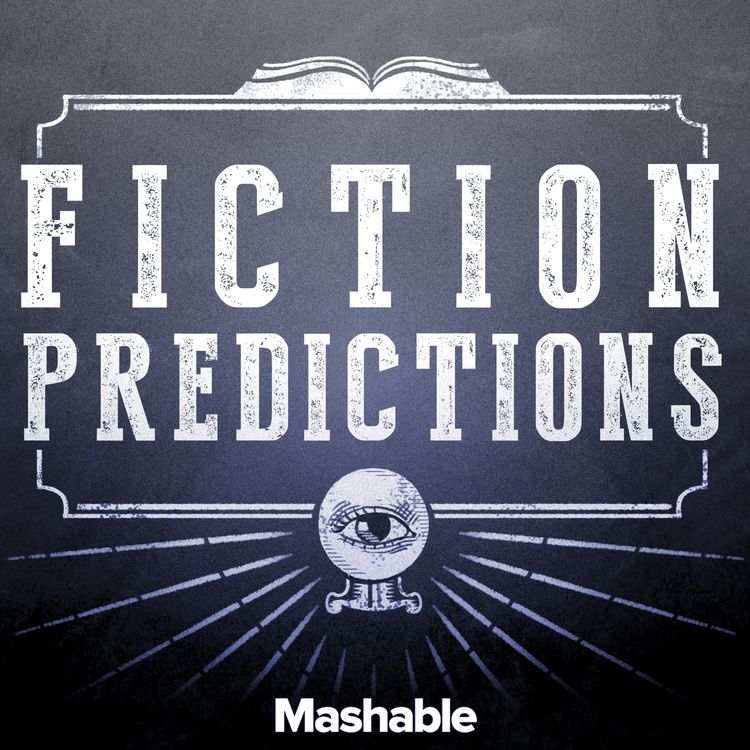
Fiction Predictions
1984 in 2019, Part II
'1984' turned 70 years old today, but it doesn't feel outdated. In fact, it's constantly coming back to dominate the news. Just a few days ago, CNN's Jake Tapper tweeted a quote from the book that went viral.
In this second part of our exploration into how much of the Orwellian dystopia has come true, we look at the three giants in our world today: China, the US, and Russia.
June 4 marked the 30th anniversary of the Tiananmen Square protests in China, which saw the Communist Party there affirm power at all costs as other socialist regimes were starting to crumble. In those 30 years, China has used technology to enforce a total surveillance state. We talk to the New York Times' Paul Mozer about how far China has been able to emulate the Orwellian totalitarian state.
We then move on to America, where the Trump presidency has totally upended democracy as the only game in town and has started to slowly chip away at deeply ingrained American values. We talk to Media Matters for America's Matthew Gertz about the complex and intertwined relationship between Donald Trump and Fox News.
Lastly, we talk to the London School of Economics' Peter Pomerantsev about what happened to an authoritarian state that failed – the Soviet Union – and how in the years that followed Russia seemed to get really rather good at anticipating the legitimacy crises democracies are facing today.
More episodes
View all episodes
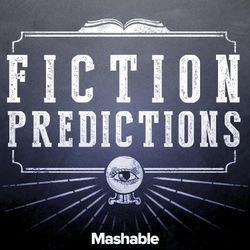
10. Catch 22 in 2019 (ft. Andy Hamilton)
40:08||Season 1, Ep. 10Like '1984', 'Catch 22' is one of those books that's become a part of our everyday language. But when it comes to contemporary society, what exactly did Joseph Heller's famous satire predict? This is the question we attempt to unravel in the final episode of our first season. Helping us are three guests: Business Insider reporter Isobel Hamilton; her father, the legendary writer/comedian Andy Hamilton; and Guardian journalist Amelia Gentleman.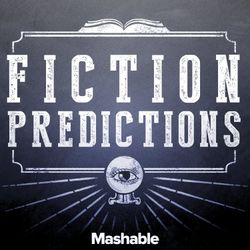
9. Neil Gaiman on 'Good Omens'
33:44||Season 1, Ep. 9'Good Omens' is a book written by Neil Gaiman and Terry Pratchett, 30 years ago. This year it also became a TV show. There's a reason for that. Now, with international tensions and the shadow of climate change constantly hanging over us, the story's apocalyptic themes feel more relevant than ever. In this episode we spoke to Neil Gaiman and the cast about all the ways the story anticipated the world we live in today.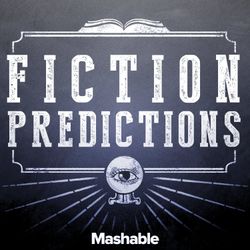
7. Podcast Special: "We are all handmaids now"
23:53||Season 1, Ep. 7A few weeks ago, a New Yorker cartoon of a bookstore employee moving a stack of dystopian novels from the 'fiction' section to the 'nonfiction' section went viral. It naturally set off a polarised conversation online about which of the novels – '1984', 'Brave New World', 'The Handmaid's Tale' – offered the best prognosis for our world today. With the onslaught of abortion bans, which seek to limit and control women's reproductive rights and their freedom of choice, being passed by several states in America, it seems Margaret Atwood's 'The Handmaid's Tale' has hit the bullseye. With this episode, we decided to break up our regular programming to bring you a podcast special about something that is unfolding right now as you're listening to this. We talk to to Joe Dator, the author of the New Yorker cartoon, about his brilliantly tongue-in-cheek attempt at crystallising the raison d'être of this podcast in a single image. We then hand off the microphone to two of our colleagues here at Mashable, Rachel Thompson and Rebecca Ruiz, who discuss how 'The Handmaid's Tale' is used, as narrative and aesthetic, by women protesting the abortion bans in the US. They then go on to talk about the impacts such restrictions have on the lives of women in America and compare it to the case of Northern Ireland, where abortion is illegal.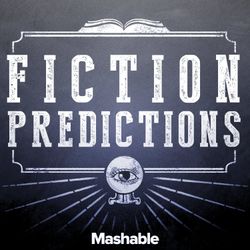
6. 1984 in 2019, Part I
30:23||Season 1, Ep. 6George Orwell's '1984', a book about a dystopian future in which a totalitarian regime assumes full control over an individual's body and mind, suddenly shot to the top of the Amazon best-seller list in the United States back in 2017. You can probably guess why... On the eve of the 70th anniversary of its publication this June, we're dedicating two episodes to what is perhaps the most overused novel when it comes to fiction predictions. In this first part, we talk to Prof. Jean Seaton, the director of the Orwell Foundation, to talk about the ways in which Orwell wrote 1984 as a rulebook for future generations and what place he reserved for hope.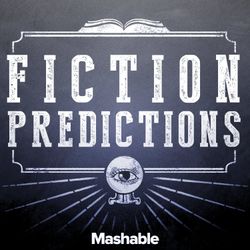
5. How 'The Simpsons' predicted the cacophony of American politics
27:48||Season 1, Ep. 5The Simpsons is constantly going viral for the ways it seems to predict aspects, both small and big, of our contemporary life. Politics is no exception. With the help of Mashable's Marcus Gilmer, we break down the ways America's favourite animated family anticipated the populist appeal of the Trump administration.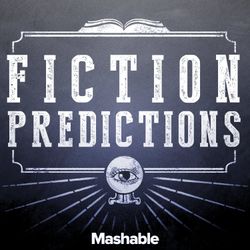
4. The novel that predicted the sinking of the Titanic
30:09||Season 1, Ep. 4The sinking of the Titanic is one of the most infamous disasters of the 20th century. Almost everyone has heard of it. What far fewer people have heard of is a novel published 14 years earlier. A novel that tells the story of a giant passenger ship named 'the Titan', which sinks after hitting an iceberg...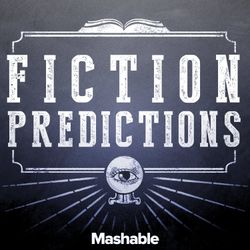
3. How Stephen Merchant’s comedies predicted two existential crises we face today
33:22||Season 1, Ep. 3This week's episode features an interview with writer/director Stephen Merchant, and two predictions for the price of one. For the first, Nik explores how The Office predicted a grim trend in work culture. And for the second, we chat with Stephen about how his comedy Extras predicted the way people act on social media today. Finally, as a special bonus, he also throws in a fiction prediction of his own...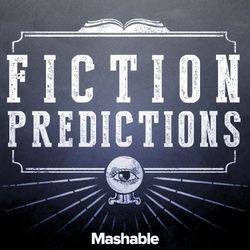
2. The 18th century prison that predicted the rise of our global surveillance society
35:53||Season 1, Ep. 2We think about surveillance as a contemporary phenomenon. It's not. It all goes back to an 18th century prison design called the panopticon. If you've ever watched Guardians of the Galaxy or Lord of the Rings, or binged the TV series Oz, you'll have seen it. But you might not have realised that you were looking different versions of the same thing. In this episode, we trace the routes of this prison through popular culture – and explore just how eerily accurate it was at foreshadowing the ways we're constantly being watched today.